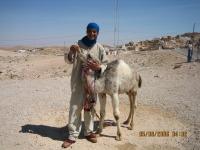***
I found Tartu as completely unlike Pärnu and Tallinn as those towns are unlike each other. It is much younger, for one thing, being only three hundred years old. Then, instead of being Gothic, it is Classic, except as to the new sub-divisions growing up all around it, which can only be described as Twentieth Century. It is strictly a university city, much of the land actually belonging to the University, which derives much of its income from the rental of stores, factories, and dwelling-houses. Its streets, though of course cobbled, are fairly wide and straight, and the town climbs the high banks of the Emajõgi (Mother) River on both sides. There are more hills here and higher ones than anywhere else in Estonia: and its Domberg, topping them all, is the highest point in the country.
The University itself - known as Dorpat University before the revolution, which changed almost all German and Russian names into Estonian ones - was founded by Gustavus Adolphus, of Sweden. The main building is beautiful and severe, its Greek columns rising heavenward from the top of an aspiring hill; and there are some 250 other buildings belonging to the University in various parts of the town.
The enrollment at the University is some 4,000 students, but the number of young men and women who wish to attend is much larger. It is a University of high standing all over Europe, and to be graduated from it is a recognized honor and is a passport to a good job. The Estonians met this difficulty in their own practical way. A survey of the country showed them how many professional men were needed - doctors, lawyers, architects, journalist, and so on - and then they limited the number of students who could enter the university to this number. Next, they proceeded to establish a number of vocational schools - agriculture, forestry, building trades, and other crafts - and made them as attractive as possible, giving honors and degrees to the best graduates.
Advertisement / Reklaam
Advertisement / Reklaam
The Care Committees of each district school - who correspond to our Parent-Teachers’ Associations, only with more duties and responsibilities, including selection of school-trustees, and truant officers, and general cooperation with the teachers - advise the students what vocation to select, and help them later to appreciate employment. And this advice is really advice, too, not compulsion, and therefore the more readily accepted.But such adjustment of the school system of the country to the needs of the country was not arrived at until after the War of Independence. The hero of that war was General Laidoner, a graduate of Tartu, leading an army largely composed of students whom he trained and armed. The arms were fished out of the sea where the Russians threw them on their departure, also captured by Judenich when the Estonian soldiers defeated that stubborn general’s reacherous effort to turn on Estonia after his repulse from Leningrad.
How to organize the new state, once it was free from German and Russina domination, was pretty well worked out by the socially-minded intellectuals, largely at Tartu. President Päts himself, the first President, still wielding supreme power when I was there, was a graduate of the University, a lawyer and a journalist. The intellectuals planned the revolution with the peasant by joining their Singing Societies.
The singing of the women at the pleasant little supper to me was not merely a social custom, but it was also an instance of what had been an important factor in the revolution - for that factor was Estonian song. When the Russian Czarist Government forbade their native speech, and the German-speaking landowners ignored it, they little thought that they were welding that speech into the chief weapon against them. Being forbidden, it became a secret language, used by men and women devoted to the cause of freedom.
Public assembly for political discussion was also forbidden, but when peole met to sing songs, this seemed so harmless that there was no objection to it, even when University professors joined their voices with the singers’, nor was there any objection when the vogue for Song Societies spread throughout the whole country. How could Russian and German spies report on songs in the “slave tongue”, setting forth the wrongs of the people, voicing their hope that some day they might be free? Actually with the smiling patronage of the German and Russian authorities, the first great Song Festival was held at Tallinn!
Advertisement / Reklaam
Advertisement / Reklaam
To it came then, as they now come every fifth year, the members of these Song Societies, wearing the costumes of their native districts, carrying banners with local insignia, singing their local songs, but also singing national songs in the full chorus of eight thousand voices, accompanied by an orchestra of five thousand.That first Song Festival - imagine what it must have meant to them! These myriads of oppressed, despised, hard-working people, for centuries despoiled and humiliated, hitherto confined by poverty to small neighborhoods, here found themselves in unity with thousands of their fellows whom they had never seen before, all singing the same soul-stirring national songs, in the same secret and beloved language! The small localized groupd, now found themselves part of a much larger, stronger group. Estonia began to be conscious of herself as a nation, native to the land.
From then on it was only a question of patient waiting in the right oppurtunity - and who so drilled in patience as they? For seven hundred years they had waited.(To be continued)




















